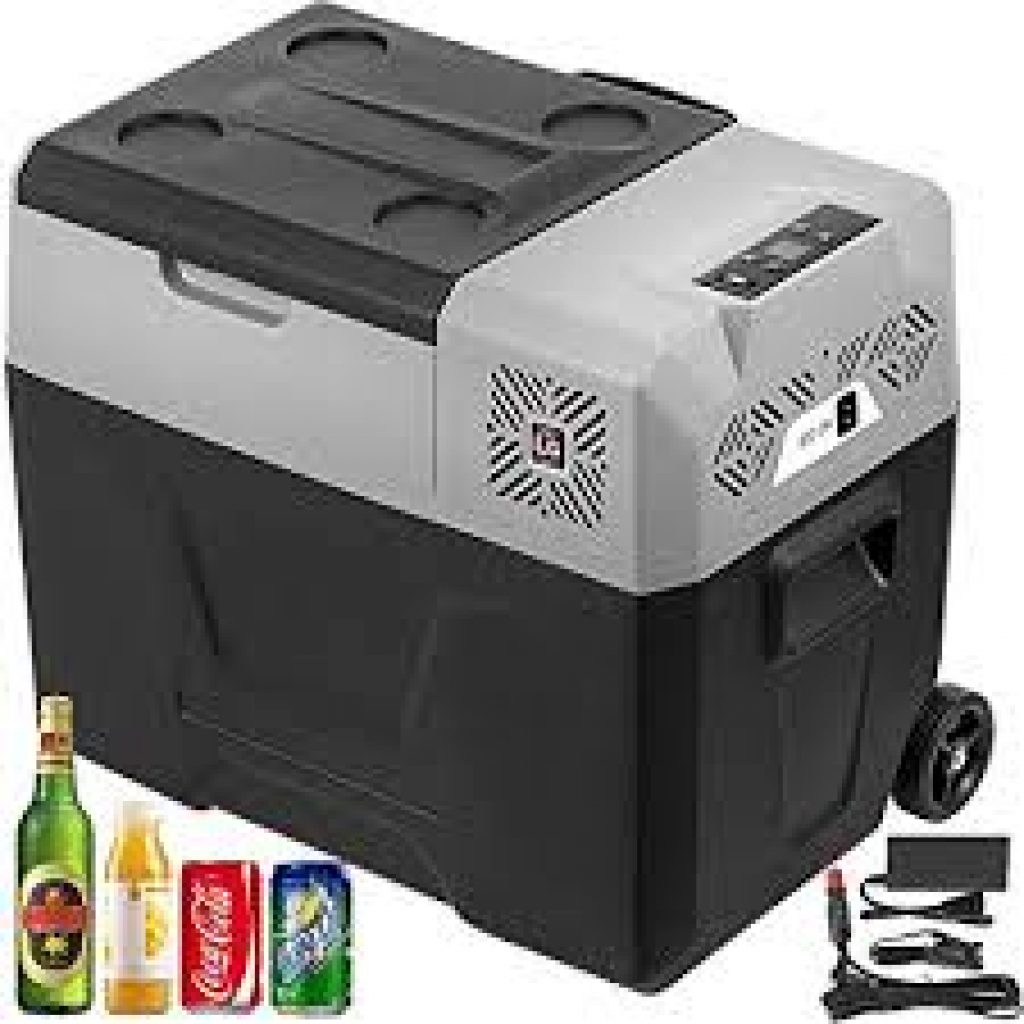Outdoor refrigerators can be a great addition to any backyard or patio, adding convenience and style. But before you buy one, you need to consider the types of outdoor refrigerators available and which one is right for you—12v or 110v? In this blog post, we’ll explore the differences between 12v and 110v outdoor refrigerators, as well as their features and benefits. From energy efficiency to ease of installation, read on to learn more about which type of refrigerator would be the best choice for your home.

What are the differences between 12v and 110v outdoor refrigerators?
There are a few key differences between 12v and 110v outdoor refrigerators that you should be aware of before making a purchase. For one, 12v refrigerators tend to be more expensive than their 110v counterparts. This is because they require a special adapter in order to work with your RV’s electrical system. 12v refrigerators also tend to be smaller in size, which means they may not have all the features and storage capacity that you need. Finally, 12v refrigerators require more maintenance than 110v models – you’ll need to regularly check the battery level and make sure the unit is properly ventilated.
Which one is right for your needs?
If you’re considering adding an outdoor refrigerator to your backyard kitchen, you may be wondering which one is right for your needs. Here’s a quick guide to help you choose the best outdoor fridge for your space.
There are two main types of outdoor refrigerators: built-in and freestanding. Built-in refrigerators are designed to be installed under a counter or in an outdoor kitchen island. Freestanding refrigerators can be placed anywhere in your backyard, deck, or patio.
When choosing an outdoor refrigerator, size is an important consideration. Built-in units are available in a wide range of sizes, from small undercounter models to large commercial-style units. Freestanding refrigerators come in smaller sizes that are ideal for tight spaces.
Another important factor to consider is how you’ll use your outdoor fridge. If you plan on using it primarily for entertaining, look for a unit with features likedigital temperature controls and LED lighting. If you’ll be using it mainly for storage, look for a unit with plenty of storage space and adjustable shelves.
Pros and cons of each type of outdoor refrigerator
12v Outdoor Refrigerators
12v outdoor refrigerators are designed to run on 12-volt DC power, which means they can be powered by a car or boat battery. These refrigerators are popular among campers, boaters, and other outdoor enthusiasts who need a portable and self-sufficient refrigeration solution.
Pros:
- Portability: 12v outdoor refrigerators are typically smaller and more portable than 110v refrigerators, making them easy to take with you on camping or boating trips.
- Energy efficiency: 12v outdoor refrigerators are designed to be energy-efficient, which means they can run for longer periods of time on a single charge.
- Cost-effective: 12v outdoor refrigerators are generally less expensive than 110v refrigerators.
Cons:
- Limited cooling capacity: 12v outdoor refrigerators have limited cooling capacity and are not suitable for storing large amounts of food or drinks.
- Limited features: 12v outdoor refrigerators typically have fewer features than 110v refrigerators, such as built-in thermometers and locking latches.
RSee Also:
- Choosing an Energy Efficient Refrigerator
- 10 best refrigerators under $500
- Best Mini Outdoor Fridge
- What Extra Features Should I Look For In A Refrigerator?
- How Does A Refrigerator Work?
- What types of technical problems are common with refrigerators?
110v Outdoor Refrigerators
110v outdoor refrigerators are designed to run on 110-volt AC power, which means they can be plugged into a standard electrical outlet. These refrigerators are popular among homeowners and other outdoor enthusiasts who need a more permanent and powerful refrigeration solution.
Pros:
- Larger cooling capacity: 110v outdoor refrigerators have larger cooling capacity and are suitable for storing large amounts of food or drinks.
- More features: 110v outdoor refrigerators typically have more features than 12v refrigerators, such as built-in thermometers and locking latches.
- More durable: 110v outdoor refrigerators are built with a more durable and powerful compressor that can withstand the harsh outdoor conditions.
Cons:
- Higher cost: 110v outdoor refrigerators are generally more expensive than 12v refrigerators.
- Not as portable: 110v outdoor refrigerators are typically larger and not as portable as 12v refrigerators, making them more difficult to take with you on camping or boating trips.
- Power requirement: 110v outdoor refrigerators need to be plugged into an electrical outlet, which may be a problem if you don’t have access to one.
Conclusion
In conclusion, whether you choose a 12v or 110v outdoor refrigerator will depend on your specific needs and preferences. 12v outdoor refrigerators are a great option for those who need a portable and self-sufficient refrigeration solution, while 110v outdoor refrigerators are a better choice for those who need a more permanent and powerful refrigeration solution. Consider the pros and cons of each type of refrigerator, and choose the one that best meets your needs.






